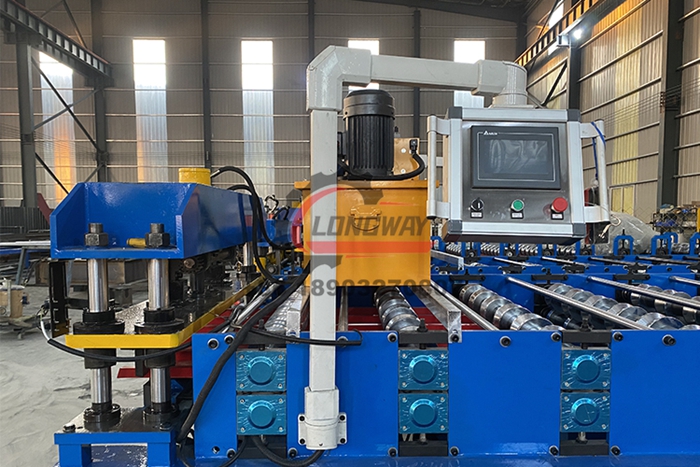Versatile Roll Forming Machine for High-Quality Corrugated Iron Roofing Production and Customization
Understanding Corrugated Iron Roofing Roll Forming Machines
In the modern construction industry, the demand for durable and efficient roofing materials is ever-increasing. Among the various options available, corrugated iron has emerged as a popular choice due to its strength, lightweight nature, and aesthetic appeal. To meet the growing demand for this specific type of roofing, the technology surrounding corrugated iron roofing roll forming machines has advanced significantly. This article will delve into the features, advantages, and applications of these machines.
What is a Corrugated Iron Roofing Roll Forming Machine?
A corrugated iron roofing roll forming machine is a specialized equipment used to fabricate metal sheets into corrugated profiles. The process involves feeding flat metal sheets, typically made of galvanized or colored steel, into a series of rollers that gradually shape the material into the desired profile. The end product is a series of repeating, wave-like ridges that not only enhance the structural integrity of the roofing but also create an attractive aesthetic.
Advantages of Corrugated Iron Roofing
One of the primary reasons corrugated iron is favored in roofing applications is its strength-to-weight ratio. The corrugated design provides rigidity and support without adding excessive weight, making it an ideal choice for both residential and commercial buildings. Moreover, these roofs are resistant to various weather conditions, including rain, snow, and wind, which ensures longevity and durability. Furthermore, the reflective properties of iron can contribute to energy efficiency by helping to regulate building temperatures.
Key Features of Roll Forming Machines
Modern roll forming machines are equipped with advanced technology that enhances their efficiency and accuracy. Key features often found in high-quality corrugated iron roofing roll forming machines include
1. Precision Engineering These machines are designed with advanced automation and control systems, ensuring that each sheet is uniformly shaped to meet specific industry standards.
corrugated iron roofing roll forming machine

3. Custom Design Capabilities Many roll forming machines can be customized to produce various profiles, allowing for flexibility and meeting specific client requirements in design and application.
4. Robust Construction Built to withstand heavy usage, these machines are typically made from high-quality materials, ensuring a long lifespan and minimal maintenance needs.
Applications of Corrugated Iron Roofing
Corrugated iron roofing has found its place in various industries due to its versatile nature. Common applications include
- Residential Buildings Many homeowners choose corrugated iron for its aesthetic appeal and durability, often employing it in garages, sheds, and entire home roofing systems.
- Commercial Structures Warehouses, factories, and agricultural buildings frequently utilize corrugated iron roofing due to its cost-effectiveness and strength.
- Infrastructure Projects Corrugated iron is also used in the construction of temporary structures and emergency shelters, benefiting from its ease of installation and removability.
Conclusion
The development of corrugated iron roofing roll forming machines has revolutionized the production of roofing materials, providing efficient, durable, and customizable solutions for a wide range of applications. As the construction industry continues to evolve, innovations in roll forming technology will likely enhance the capabilities of these machines, further ensuring that corrugated iron remains a leading choice in roofing solutions. With their ability to combine functionality with aesthetic appeal, corrugated iron roofs are sure to remain a staple in architectural design for years to come.
-
Roof Panel Machines: Buying Guide, Types, and PricingNewsJul.04, 2025
-
Purlin Machines: Types, Features, and Pricing GuideNewsJul.04, 2025
-
Metal Embossing Machines: Types, Applications, and Buying GuideNewsJul.04, 2025
-
Gutter Machines: Features, Types, and Cost BreakdownNewsJul.04, 2025
-
Cut to Length Line: Overview, Equipment, and Buying GuideNewsJul.04, 2025
-
Auto Stacker: Features, Applications, and Cost BreakdownNewsJul.04, 2025
-
Top Drywall Profile Machine Models for SaleNewsJun.05, 2025








